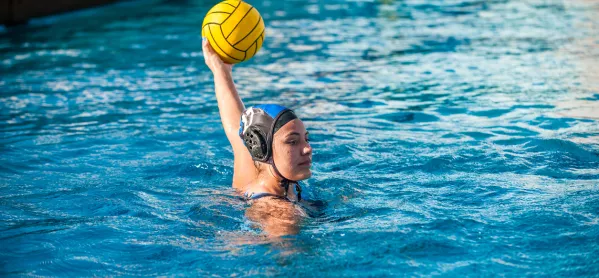Water polo, figure skating and windsurfing are among the options pupils can now take for GCSE or A-level PE, after the government published an updated list of activities that can count towards the subject today.
Ten sports have been added to the list. At GCSE, pupils can now take team sports include acrobatic gymnastics, futsal, ice hockey, inline roller hockey, sailing, sculling and water polo.
Related: The key to good mental health? Physical activity
Physical education: Sport and exercise are ‘essential’ for successful exam leave
News: How the Lionesses are inspiring a generation of girls
And individual activities can now involve windsurfing, sailing and figure skating.
At A level, pupils can also compete in a triathlon.
PE: New sports for GCSE and A level
And in athletics, pupils will now be able to complete long-distance and cross-country running. In cycling, already included as a discipline, candidates can also now demonstrate their skills in BMX.
Students will be able to take part in the new sports from 2020.
Schools standards minister Nick Gibb said: “Physical activity is very important for young people and I want to encourage more children and teenagers to exercise every day and to be active.
“Extending the list of sports which pupils can use for GCSE, AS or A-level PE opens the door to those qualifications for children across the country, dedicated to a sport they love, but who previously may not have thought of PE as an option. So just as someone who excels at football or rugby has always been able to translate that to school PE, someone with experience in ice hockey or triathlon will now be able to do the same.”
Sue Wilkinson, chief executive of the Association for Physical Education, said: “We are very pleased that this list has been extended. It will open up lots of options for people who are great ice skaters or brilliant futsal players.”
However, Ms Wilkinson said awarding bodies may need to provide additional funds for professional development, so that PE teachers can assess the new sports with confidence.
And she said there may need to be additional government funding to ensure that different regions of the country can access water sports options.
“If you’re on the coast, it’s not going to cost,” she said. “But it’s different for landlocked areas.”
Praising the “diverse menu” of options, she said: “It’s very positive, we just need to find practical solutions and resources to make it happen.”
Ms Wilkinson said the new range of sports also represented a movement away from traditionally “white, male-dominated invasion sports”. “Invasion sports” refers to competitive team sports in which the aim is to invade the opponents’ territory.
“Now there should be something for everyone,” she said.
The new sports for GCSE and A level are:
- Acrobatic gymnastics
- Figure skating
- Futsal
- Ice hockey
- Inline roller hockey
- Sailing
- Sculling
- Triathlon (at A/AS level only)
- Water polo
- Windsurfing




